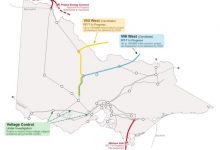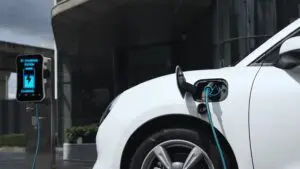The Australian Energy Market Operator says it will work with the Victorian government to identify and establish new renewable energy zones in the state, as part of a $3.5 billion suite of network development projects designed to ensure a smooth transition to the legislated target of 50% renewables by 2030.
The Transmission Roadmap for Victoria was outlined by AEMO on Thursday in its latest annual report card on the state’s electricity network, which assesses its capability to meet the state’s energy reliability and security needs over the coming decade and identifies future limitations.
The broad theme of the 2020 Victorian Annual Planning Report (VAPR) is that the job of running the state’s grid – a Declared Shared Network for which AEMO has additional responsibilities – is becoming increasingly complex as it accommodates gigawatts-worth of new renewables.
This has been evident enough over the past 12 months, with delays to the commissioning of completed wind and solar farms and constraints to the output of already operational projects – and not just in identified problem areas such as Victoria’s notorious “rhombus of regret.”
 In July, Tilt Renewables’ 336MW Dundonnell wind farm was blind-sided by “unanticipated concerns” raised at the last minute by AEMO, despite the project having followed an agreed commissioning plan in line with Generator Performance Standards negotiated in 2018, prior to financial close.
In July, Tilt Renewables’ 336MW Dundonnell wind farm was blind-sided by “unanticipated concerns” raised at the last minute by AEMO, despite the project having followed an agreed commissioning plan in line with Generator Performance Standards negotiated in 2018, prior to financial close.
But AEMO has its work cut out – it notes in the report that since the 2019 VAPR, 1.6GW of new large-scale wind and solar projects have connected in Victoria, with another 1.5GW committed and a further 16.3GW with lodged connection enquiries.
 As for the coming decade, AEMO estimates that Victoria will need at least an additional 5.4GW of additional large-scale projects and DER investment to meet the 2030 VRET, and all for a network built a generation ago around a handful of coal-fired power plants.
As for the coming decade, AEMO estimates that Victoria will need at least an additional 5.4GW of additional large-scale projects and DER investment to meet the 2030 VRET, and all for a network built a generation ago around a handful of coal-fired power plants.
“We are seeing record levels of investment in new large-scale renewable energy generation, with AEMO having connected more generators in Victoria over the period than in any other NEM state, or than in any previous reporting period,” said AEMO CEO Audrey Zibelman in a statement on Thursday.
“Victoria now has approximately 7.8GW of existing or committed wind and solar generation, and 2.9 GW of this is distributed PV,” she said.
“The 2020 report outlines how AEMO will adapt its regional planning processes to match Victoria’s changing needs.”
To this end, AEMO has started work on a REZ Development Plan alongside the VAPR, through which it hopes to understand how different geographic patterns of generator investment might impact the optimal transmission build for Victoria.
 The resulting network limitations – AEMO separates these into two categories, of “priority limitations” and “developing limitations” – and remediation options would allow projects to be fast-tracked through the regulatory process when justified, the report says, or provide options for third-party investment.
The resulting network limitations – AEMO separates these into two categories, of “priority limitations” and “developing limitations” – and remediation options would allow projects to be fast-tracked through the regulatory process when justified, the report says, or provide options for third-party investment.
 “AEMO will work with the Victorian government to develop a REZ Development Plan (RDP) that will map out how alternative patterns of generation might impact the optimal development of transmission in the state – considering network projects that might best support areas of high developer interest,” said Zibelman.
“AEMO will work with the Victorian government to develop a REZ Development Plan (RDP) that will map out how alternative patterns of generation might impact the optimal development of transmission in the state – considering network projects that might best support areas of high developer interest,” said Zibelman.
“AEMO will also deliver a connections uplift program with a strong emphasis on transparent processes, common methodologies, novel technology solutions, improved project tracking, and enhanced modelling capabilities to manage the volume and complexity of new connections.”
Zibelman said that other milestone projects on the roadmap included the Victoria to NSW interconnector (VNI), improved voltage control, and the expansion of renewable energy zone (REZ) projects to promote planned investment in high-quality generation areas.
“These investments will reduce overall costs to consumers by enhancing competition, unlocking lower-cost generation supplies, and improving the efficiency of resource sharing between regions,” she said.
For Victoria, the assistance from AEMO is welcome. The Andrews government at the start of the year announced its intentions to “go it alone” on energy reliability reform, after becoming frustrated by the federal energy minister Angus Taylor’s failure to drive through crucial electricity market rule changes at a national level.
State energy minister Lily D’Ambosio did this by requesting an exemption from the Australian Energy Market Commission to allow Victoria to negotiate directly with AEMO for longer-term deals for emergency back-up power supply contracts.
The request was approved by the AEMC in March, and the first fruits of the initiaitve delivered just last week, when it was announced that Neoen had won a contract to build a 300MW/450MWh Tesla big battery in Geelong, as part of a 10-year deal with AEMO to participate in Victoria’s System Integrated Protection Scheme (SIPS), to provide grid security and allow for an increase in operating capacity on the main transmission link between Victoria and NSW.









